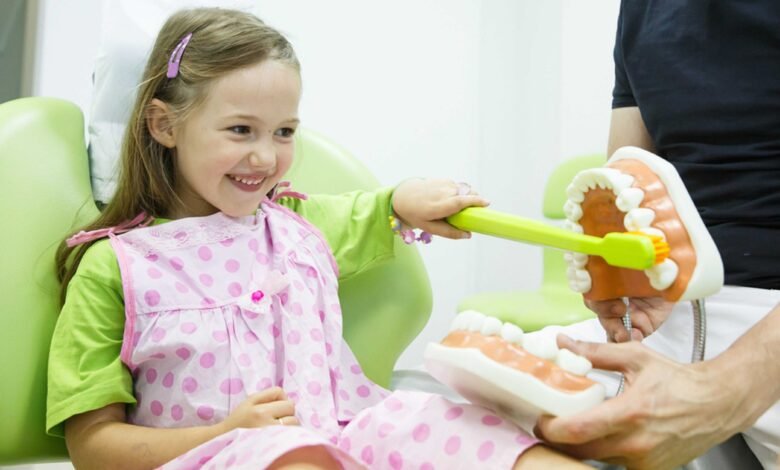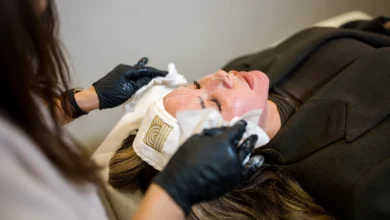How to Foster Good Dental Hygiene Habits in Children

Encouraging children to maintain good dental hygiene is crucial for their overall health. Choosing a trusted family dentistry clinic in Australia can provide comprehensive dental care. Engaging and enjoyable dental care can significantly influence children’s willingness to participate in oral health routines. Professional guidance from pediatric dental services can pave the way for effective dental health maintenance during early development.
Key Takeaways
●Start early with dental care to prevent future issues.
●Utilize fun and engaging tools to make oral hygiene enjoyable.
●Education at home and school reinforces lifelong habits.
●Healthy dietary choices support strong, healthy teeth.
●Regular dental examinations are necessary to monitor and preserve oral health.
Introduction to Dental Hygiene for Kids
Teaching children to care for their teeth is more than simply a required hygiene practice; it’s a gift that parents can give them that will last a lifetime. A bright, healthy smile is guaranteed by proper dental treatment, which also prevents further dental problems. Comprehensive dental treatment may be obtained by selecting a family dentistry Perth clinic. Parents frequently ponder how to instill these behaviors in their children and how to sustain them successfully over time. This manual offers helpful hints and methods for incorporating dental hygiene into a child’s everyday routine and making it enjoyable.
The Importance of Early Dental Care
Starting dental care early is paramount in preventing numerous dental issues that can develop over time. Engaging in oral care practices from a young age sets children on a path to healthy gums and teeth. Reports underscore that children who brush with assistance from their parents have fewer cavities and gum problems. For comprehensive guidance, parents might explore resources such as Kids Health, which offers basic dental care recommendations. A strong dental foundation in infancy can help create healthier adults who recognize and value good oral hygiene.
Making Brushing Fun and Engaging
Children are often reluctant to brush their teeth, as they may view it as mundane. However, transforming this routine into an interactive activity can significantly change their perspective. Parents can use songs, timers, or apps to make brushing fun. These interactive tools bring joy to the routine and help children understand the proper duration for brushing.
●Create a Routine: Consistency is key to minimizing resistance. Establishing specific brushing times creates predictability, which children can adjust to over time.
●Use Kid-Friendly Products: Brightly colored toothbrushes with child-friendly designs and kid-approved toothpaste flavors can motivate children to brush their teeth willingly.
Incorporating Oral Hygiene Education in Schools
Oral hygiene education can begin within the school system, where children spend significant time each week. Schools can integrate lessons on brushing and flossing into their health curricula, often complemented by visits from dental professionals who can demonstrate proper techniques. Such demonstrations can leave a lasting impression on children, making them more likely to adopt these practices at home.
Dietary Choices and Dental Health
It is essential to comprehend how food and oral health are related. Sugary foods and beverages can cause cavities and other dental issues, so parents should try to restrict their kids’ use of them. A balanced diet rich in fruits, vegetables, and whole grains strengthens teeth and gums and improves overall health. When developed early, such dietary habits can contribute to lifelong dental health. Children can satisfy their nutritional needs and protect oral health through proper dietary choices.
The Role of Regular Dental Checkups
Regular dental checkups are critical in maintaining a child’s oral health. While the frequency of visits can vary based on individual dental needs, a standard guideline suggests semi-annual visits to the dentist. These checkups allow dental professionals to monitor a child’s dental development, identify potential issues early, and provide appropriate treatment or preventive measures. For additional insights on preparing children for dental visits, parents can explore the American Dental Association’s recommendations. Regular interaction with dental professionals helps children become accustomed to the care environment, reducing anxiety over time and reinforcing the importance of dental health.
Promoting Long-Term Habits
As children age, they may challenge routine dental practices, a natural part of development. Therefore, parents need to maintain open communication regarding the importance of dental hygiene. Positive reinforcement and leading by example can encourage children to keep these lifelong habits. Observational learning is powerful. Children who see their parents consistently prioritizing oral care are likelier to follow suit and incorporate those behaviors into their routines.
Conclusion: Setting a Foundation for a Lifetime of Smiles
Establishing robust dental hygiene practices in children impacts their immediate health, well-being, and self-esteem. By establishing enjoyable routines and promoting information, parents and educators may enable kids to take responsibility for their dental care. With the right tools and understanding, kids can develop habits that lead to healthy smiles for many years, ensuring immediate benefits and lifelong oral health.




